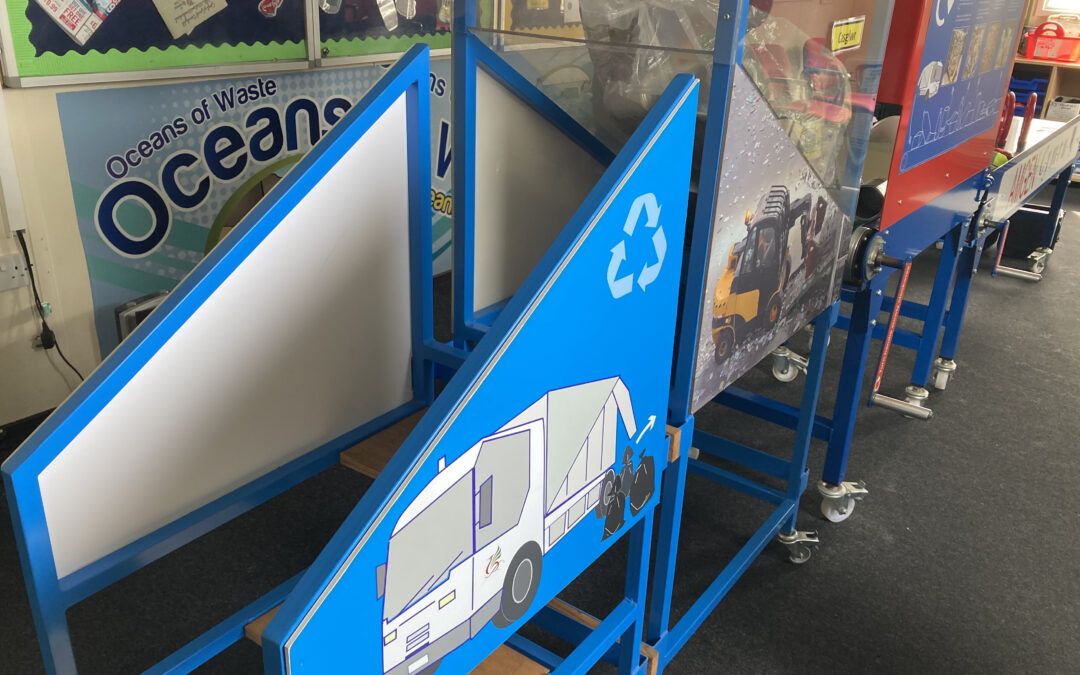Wales boasts that it is the second best country in the world for recycling. I went to visit a recycling facility in Rhondda Cynon Taff to find out more.
I’ve been curious about Bryn Pica for a while now so when a fellow sustainability enthusiast mentioned their education centre I agreed to go on a field trip.
Driving into Bryn Pica, once we had found the right entrance, I was struck by the giant dome and futuristic looking columns. Being members of the public we couldn’t tour the actual plant but were treated to the next best thing in some informative videos and even more informative staff in their education centre. On screen conveyor belts whirred, machinery hummed, and a small army of workers and AI sensors diligently sorted through mountains of waste. It was both impressive and a little overwhelming—proof of just how much we consume and discard. It turned out that the giant dome is an anaerobic digestor, turning tonnes of foodwaste into fuel and compost.
The facility processes household recycling from across Rhondda Cynon Taff, and it was fascinating to see how everyday items like cereal boxes, plastic bottles, and tin cans are separated, baled, and prepared for their next life. Contamination is a huge problem. A spilled tin of beans or a full pop bottle can disrupt the entire process as the scanners are unable to ‘see’ through the spillage and so the resources are diverted for incineration. That said, remarkably little waste ends up in the landfill here, the main contender is dog waste and the occasional hazardous material which can’t be burned. If it’s really not recyclable it is incinerated to produce energy and then the resultant ash and even the particulate from the smoke are reclaimed for use in construction materials such as those plastic grids that hold gravel in place.
While we are on the topic of construction, one of the most inspiring parts of the tour was learning how Wales doesn’t just recycle—it actively fuels a circular economy. So for example, instead of chipping or burning discarded furniture from the residential recycling centres, timber is diverted to Prichard Holdings, a local business just 20 miles away in Pontyclun.
At Prichard’s, reclaimed wood is stripped of nails, sanded, and transformed into sturdy new boards. These aren’t just niche artisan products—they’re used by builders, landscapers, and even in public projects across South Wales. It’s a perfect loop: wood that might have rotted in landfill gets a second life, local jobs are supported, and fewer trees are cut down.
It’s a win-win situation, reusing local wood slashes emissions from manufacturing and transport. Prichard Holdings also trains and employs locally. The partnership is very Welsh—practical, collaborative, and quietly revolutionary.

